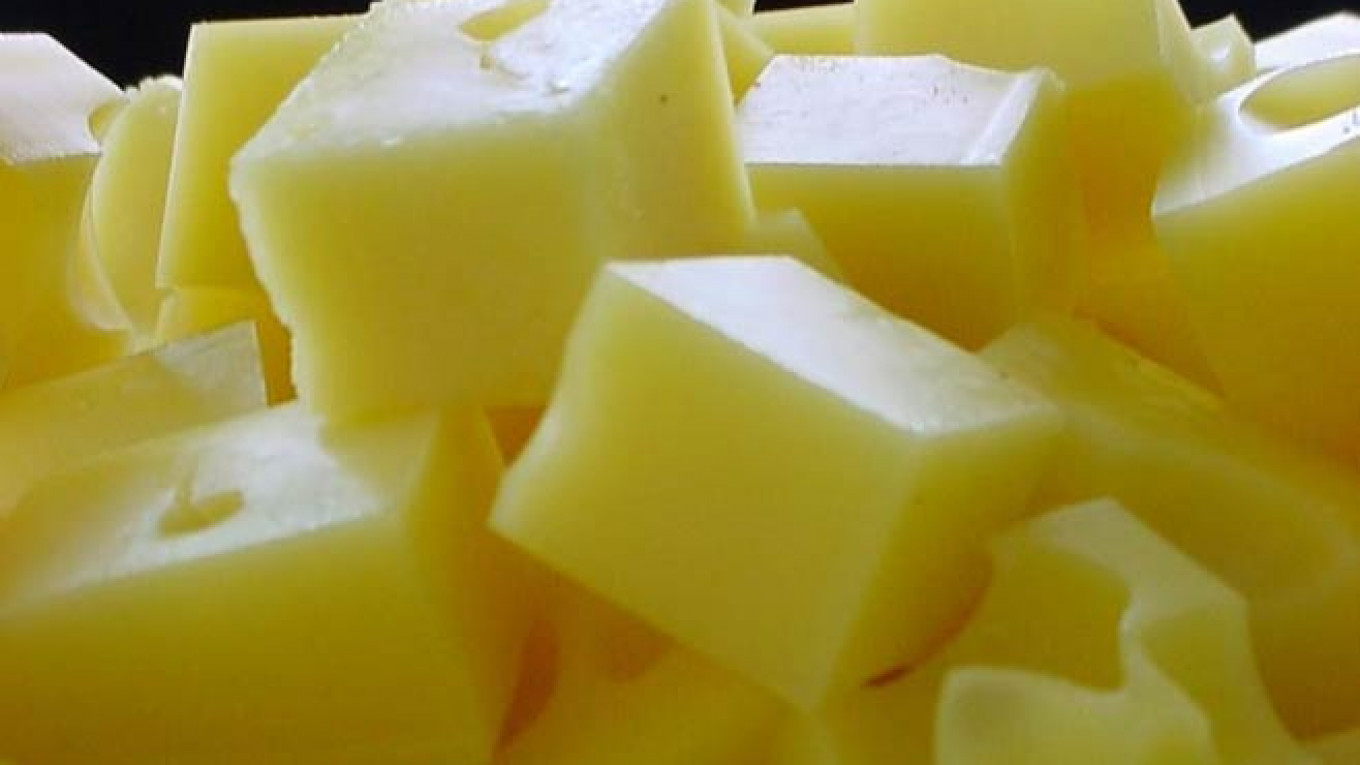National dairy producer association Soyuzmoloko has called on the government to inspect all Ukrainian cheese imports, claiming that producers across the border are fraudulently using vegetable oils in their products.
These cheeses are 15 to 20 percent cheaper than fully milk-based cheese, which puts Russian enterprises at a competitive disadvantage, a Soyuzmoloko spokesman said.
"The consumer always votes with the ruble, but in this case he has been misled — he believes that this is real cheese, not a milk-vegetable product," the spokesman said.
The Consumer Protection Agency is examining the complaints, an agency spokesman told RIA Novosti.
According to the association, Russia imported 20,000 tons of vegetable oil-based cheese from Ukraine in 2013, Kommersant reported.
Ukraine exported a total of 17,850 tons of cheese to Russia in the first half of 2013, according to Ukrainian government statistics and the Federal Tax Service, putting the purportedly fraudulent cheese at more than half of total annual imports.
Simple calculation shows that, taking 15 percent off the average sales price of cheese in Russia — about 345 rubles per kilogram as of April 7, according to the Agriculture Ministry — the total revenues from 20,000 tons of vegetable oil based cheese would amount to 5.9 billion rubles ($163 million).
The Consumer Protection Agency halted imports of dairy products from several Ukrainian companies on April 7, saying that the products did not meet Russian nutritional requirements.
The agency also banned imports of Ukrainian cheese during a period of political tension in early 2012, at that time accusing producers of using excessive quantities of palm oil.
A Message from The Moscow Times:
Dear readers,
We are facing unprecedented challenges. Russia's Prosecutor General's Office has designated The Moscow Times as an "undesirable" organization, criminalizing our work and putting our staff at risk of prosecution. This follows our earlier unjust labeling as a "foreign agent."
These actions are direct attempts to silence independent journalism in Russia. The authorities claim our work "discredits the decisions of the Russian leadership." We see things differently: we strive to provide accurate, unbiased reporting on Russia.
We, the journalists of The Moscow Times, refuse to be silenced. But to continue our work, we need your help.
Your support, no matter how small, makes a world of difference. If you can, please support us monthly starting from just $2. It's quick to set up, and every contribution makes a significant impact.
By supporting The Moscow Times, you're defending open, independent journalism in the face of repression. Thank you for standing with us.
Remind me later.


